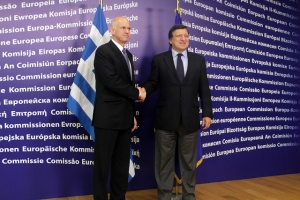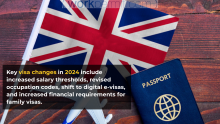Support migrant centric journalism today and donate

 • Media Center » Video Immigration News
• Media Center » Video Immigration News
Businesses taking part in an informal debate on a common immigration pact in the European Union feel that highly skilled immigration is extremely important.
One of the main points in the new immigration pact, led by France, is to find a common approach for legal immigration into the 27-member bloc and make the EU more attractive to top talent from around the world.
The main focus is on the EU Blue Card, a proposed single work and residence permit for highly skilled individuals from outside the EU. The Blue Card would replace the current 27 separate visa regimes that exist across the EU.
The Blue Card, proposed in October of 2007, has been steadily gaining acceptance by member nations. While some nations such as Austria and Germany initially resisted the call for a common immigration policy, changes to the initial proposal -- such as letting each nation decide on the number of migrants they will let in -- have made the Blue Card more attractive.
Details of the scheme are still being hammered out, but the Blue Card is expected to grant a skilled migrant with the right qualifications and a job offer a two-year, renewable work and residence permit. The permit would also allow entry for the Blue Card holder's family. Eventually, a Blue Card holder could qualify for permanent residence.
Businesses are keen to see the Blue Card become a reality as soon as possible. Labor shortages in key sectors such as information technology, engineering, and health care, coupled with an aging population, are creating a "demographic time-bomb" that is set to explode within the next few decades unless something is done to increase the skilled working-age population.
In addition, more highly skilled workers are needed to make the EU more competitive with other economies. Currently, 55 percent of the world's skilled migrants go to the United States and Canada. The European Union attracts only 5 percent of highly skilled migrant workers.
But some member nations, such as the Czech Republic, want existing barriers to free movement of labor removed within the EU before implementing a skilled immigration scheme for third country nationals.
New-member nations in Eastern Europe that joined in 2004 and 2007 are not allowed to work permit-free in some Western European countries under temporary transitional arrangements under the accession treaties.
The Czech Republic wants the EU to wait until at least 2011 before enacting a Blue Card scheme for workers from outside the EU, when transitional arrangements for their country and others that joined in 2004 expire.





















